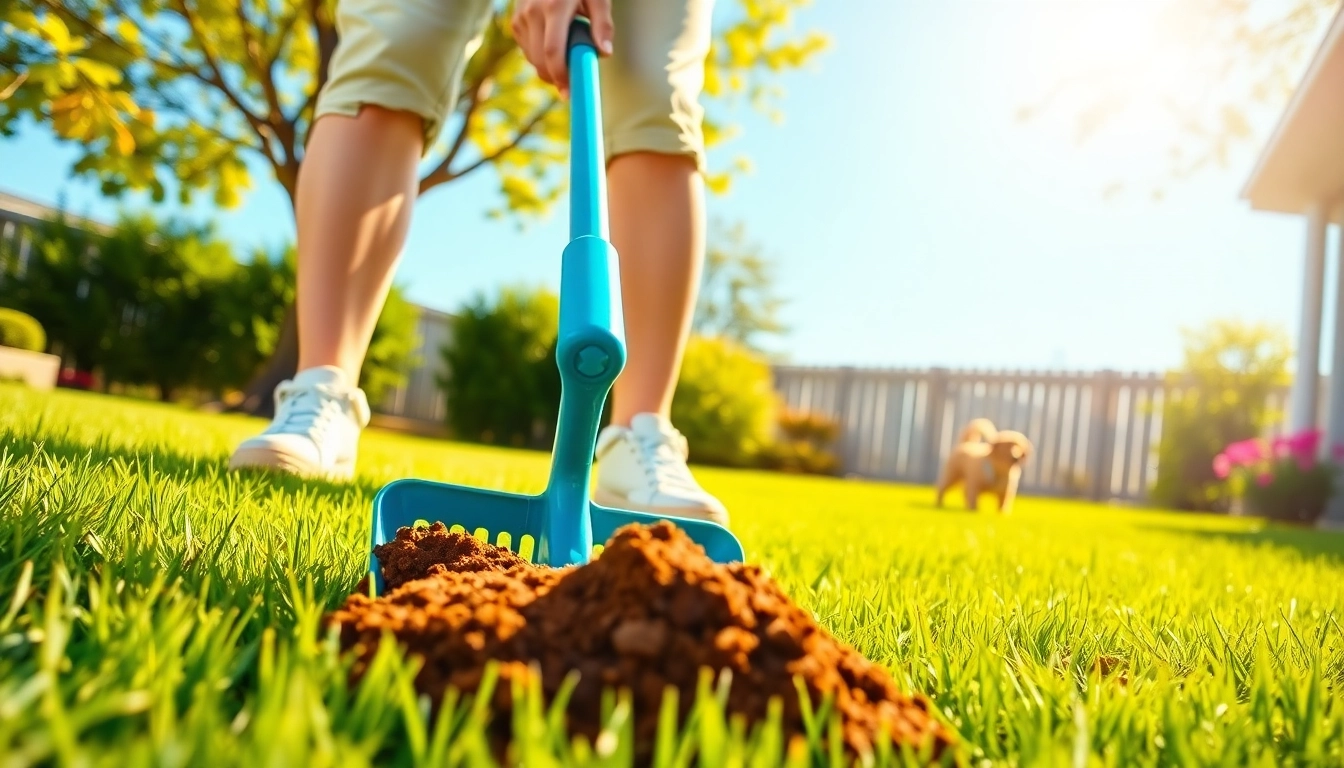Understanding the Need to Clean Up Dog Poop
Cleaning up dog poop isn’t just a matter of aesthetics; it’s a crucial responsibility for any pet owner. By taking proactive steps, you contribute to a healthier environment and a more pleasant community. Whether you’re a seasoned dog owner or a new pet parent, learning effective methods to clean up dog poop is essential.
Health Risks Associated with Dog Waste
Dog waste is more than just an unsightly mess. It poses numerous health risks, both for humans and animals. Here are some key health concerns associated with neglecting pet waste:
- Pathogen Transmission: Dog poop can contain parasites, bacteria, and viruses that can be transmitted to humans and other animals. For instance, roundworms, giardia, and salmonella can thrive in dog waste.
- Water Contamination: When rain washes dog excrement into storm drains, it can pollute local water supplies, introducing harmful pathogens into drinking water. This represents a serious public health concern.
- Soil Degradation: Accumulation of dog waste can lead to nutrient imbalances in the soil, altering local ecosystems and making them less hospitable to beneficial organisms.
Environmental Impact of Neglecting Dog Waste
Failing to clean up after your dog can have far-reaching consequences for the environment. Some critical aspects include:
- Air Quality: Decomposing dog poop emits unpleasant odors and potentially harmful gases, contributing to air pollution around your home.
- Local Wildlife: Dog waste can attract pests and wildlife that can disrupt natural habitats, leading to a decline in local biodiversity.
- Community Spaces: Parks and shared spaces suffer when dog owners neglect waste cleanup, significantly diminishing the quality of these areas for all users.
Legal Responsibilities of Pet Owners
In many communities, there are laws requiring pet owners to clean up after their dogs, with penalties for those who don’t comply. These regulations typically aim to:
- Protect Public Health: By enforcing cleanup laws, municipalities help safeguard public health, especially in heavily populated areas.
- Maintain Community Cleanliness: Local ordinances exist to keep parks and shared spaces clean and free of waste, maintaining a pleasant environment for all.
- Encourage Responsible Pet Ownership: Laws promote accountability among pet owners, fostering a culture of responsibility and respect within communities.
Best Tools for Cleaning Up Dog Poop
To effectively manage dog waste, having the right tools is essential. Let’s explore the various options available:
Types of Pooper Scoopers: Pros and Cons
Pooper scooper tools are designed to make cleaning up dog poop easier and less messier. Here are some common types:
- Handheld Scoops: These compact tools are easy to carry and perfect for quick pick-ups. However, they may not be ideal for larger yards.
- Long-Handled Scoops: These scoopers reduce bending and are excellent for larger areas, but they can be cumbersome to store.
- Rakes and Buckets: While effective for large quantities of waste, they can be messy and require more effort to clean.
Using Dog Waste Bags: Tips for Efficiency
Dog waste bags are fundamental for on-the-go cleanup. To maximize their utility, consider the following tips:
- Choose Biodegradable Bags: Opt for environmentally friendly waste bags that break down more quickly than traditional plastic.
- Double Bagging: In cases of soft or wet waste, double bagging can prevent leaks and mess during disposal.
- Keep Them Handy: Always carry extra bags during walks to ensure you’re prepared for any situation.
Innovative Solutions: Automatic Dog Poop Cleaners
Technology has simplified pet waste management in recent years. Automatic dog poop cleaners can make the task even easier:
- Self-Cleaning Solutions: These systems, often installed in yards, work automatically to dispose of waste, minimizing human involvement.
- Smart Sensors: Some models are equipped with sensors that detect waste and initiate cleanup, providing convenience and efficiency.
- Cost Considerations: While these systems can be an investment, for busy pet owners, they can save time and effort in the long run.
Step-by-Step Guide: How to Clean Up Dog Poop
Cleaning up dog poop can be straightforward with a structured approach. Follow this comprehensive guide:
Preparation: What You Need Before Starting
Before beginning the cleanup process, gather your supplies:
- Pooper scooper or rake
- Dog waste bags
- Disposable gloves for added hygiene
- Disinfectant for tool cleaning
Techniques for Easy and Effective Cleanup
Implement these techniques for optimal results:
- Put on gloves to protect your hands from germs.
- Use the scooper to lift the waste, ensuring you capture all pieces.
- Place the waste in a bag, sealing it tightly to avoid leaks.
- Dispose of the bag in an appropriate waste bin, preferably one designated for dog waste.
Post-Cleanup: Proper Disposal Methods
Proper disposal of dog waste is crucial to minimize environmental impact:
- Trash Disposal: Ensure bags are securely tied and placed in a trash can to avoid spillage.
- Flushing: In some areas, it’s permissible to flush dog waste down the toilet, allowing it to be processed in sewage treatment plants.
- Composting: With proper care and conditions, dog waste can be composted in a designated waste digester, creating nutrient-rich compost for gardens.
Maintaining a Clean Yard: Ongoing Practices
Commit to regular practices to ensure your yard remains clean and healthy:
Routine Cleanup Schedules
Establish a routine for cleaning up dog waste:
- Daily Checks: For obstinately active dogs, daily checks help keep waste accumulation in check.
- Weekly Cleanings: For larger yards or multiple dogs, consider weekly deep cleans.
- Seasonal Adjustments: During winter, scheduled cleanups should adapt to account for snow coverage.
Training Your Dog to Go in Designated Areas
Consider training your dog to use specific areas for their bathroom needs:
- Designated Potty Zones: Use fences or markers to establish where your dog should relieve themselves.
- Positive Reinforcement: Reward your dog when they use the designated area, reinforcing this behavior.
Seasonal Considerations for Dog Waste Management
Different seasons present unique challenges when maintaining a clean yard:
- Winter: Snow can conceal waste, making it essential to implement a regular schedule to avoid long-term deposits melting into the ground.
- Spring: As snow melts, be proactive in cleaning up accumulated waste to prevent damage to your lawn and odors.
- Summer: Higher temperatures accelerate decomposition, increasing the urgency of waste removal.
Seeking Professional Help: When to Consider a Service
Sometimes, handling dog waste cleanup can become overwhelming. In such cases, consider enlisting professional assistance:
Benefits of Hiring Poop Removal Services
Using professional services has several advantages:
- Time Savings: Professionals can handle the task efficiently, freeing up your time for other important activities.
- Expertise: Service providers have experience in efficiently and effectively managing pet waste and can handle larger properties.
- Consistency: Regular scheduled visits from professionals can ensure that your yard remains clean and safe throughout the year.
Cost Considerations for Professional Cleaners
While hiring a pet waste removal service involves costs, consider these factors:
- Size of the Property: Larger yards will likely incur higher fees due to the increased workload.
- Frequency of Service: Weekly, bi-weekly, or monthly options may offer different pricing structures; ascertain which fits your needs best.
- Service Add-ons: Some companies may offer additional services, like yard deodorizing or disinfecting, which can influence total costs.
Choosing the Right Service Provider
When selecting a pet waste removal service, consider the following:
- Research: Look for reviews and testimonials online to evaluate the company’s reputation.
- Services Offered: Verify that their offerings align with your cleanup needs, whether you require one-time services or regular visits.
- Insurance and Warranties: Ensure they are insured to protect against any liabilities or mishaps during service.



